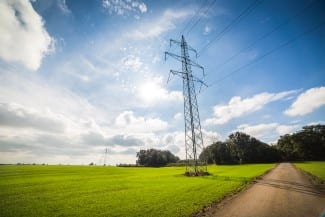Emissions Reduction Alberta BEST Challenge

Up to 40% of Alberta’s greenhouse gas (GHG) emissions are produced by electricity generation, transportation, and biological industries (including agriculture, forestry, and waste management). Minimizing the environmental impacts of these three areas is critical, but lack of clean technologies (cleantech) is preventing many companies from adopting these sorts of innovations. To succeed in a low-carbon economy, Alberta requires more technology developers to lead their ideas through to commercialization.
Fortunately, the Biotechnology, Electricity, and Sustainable Transportation Challenge (BEST Challenge) is available to help pilot, demonstrate, and implement innovative GHG-reducing technologies. The Challenge is led by Emissions Reduction Alberta (ERA), a key partner to the Government of Alberta that leads development and integration of technology-based climate solutions. Through the Challenge, ERA will provide successful applicants with funding to advance innovations towards commercial readiness.
The ERA BEST Challenge offers technology developers up to 50% of eligible costs to a maximum $10 million in Alberta government grants.
The BEST Challenge is a limited-time opportunity, and innovators do not need to be Alberta-based to apply. There is a two-phase application process to be considered; this includes an Expression of Interest (EOI) due September 13, 2018 and a full application in October 2018 for those called forward from the EOI phase.
Emissions Reduction Alberta BEST Challenge for Cleantech Innovation
The Biotechnology, Electricity, and Sustainable Transportation (BEST) Challenge is a new initiative led by Emissions Reduction Alberta. The program seeks innovative, technology-based solutions that reduce greenhouse gas emissions while maintaining or improving the competitiveness of Alberta’s top emitters. Through the program, companies can access funding to pilot, demonstrate, and implement GHG solutions.
Projects can last up to three years. ERA funding will cover up to 50% of eligible expenses during this period to a maximum $10 million in cleantech grants.
Although individual applicants are encouraged to submit their innovations for consideration, the program is predominantly searching for collaborations between multiple eligible organizations. Most projects awarded with funding will involve at least one technology developer and at least one technology receiver who can demonstrate and/or implement the technology in their own operations.
Applicants Eligible for the ERA BEST Challenge
To submit a competitive project proposal to Emissions Reduction Alberta, companies must develop a project to be headed by one lead applicant (technology leader). Lead applicants can be:
- Technology developers;
- Industry and industrial associations;
- Small and medium-sized enterprises (SMEs);
- Research organizations and universities;
- Municipalities;
- Non-profits;
- Government research labs; and
- Individuals.
Project Requirements for the ERA BEST Challenge
To qualify for support through ERA’s BEST Challenge, applicants must propose a technology-based project that applies to an eligible focus area, including:
- Biological resource optimization and biotechnology;
- Low-carbon electricity technology; and
- Sustainable transportation technology.
Furthermore, projects may last up to three years and consist of activities such as:
- Field Pilots: Scale-up of prototypes to representative pilot scale and subsequent in-field testing of pilot units.
- Commercial Demonstrations: Demonstration of near- or fully-commercial scale systems in an operational environment.
- First-of-Kind Commercial Implementations: Design, construction, and operation of the technology in its final commercial form, with the intent to operate the technology for its full commercial life.
How to Apply for the Biotechnology, Electricity, and Sustainable Transportation Challenge
To participate in the ERA BEST Challenge, technology developers (the lead applicant) must submit an Expression of Intent (EOI) application package no later than September 13, 2018. The top projects will be called forward to a “shortlist” in October, and then those companies must develop a full application by December 20, 2018.
Official funding decisions will be made by March 1, 2019, at which time successful applicants can begin their commercialization partnerships as outlined in their proposals. Only expenses incurred after formal approval can be considered for Alberta government grants.
To discuss your project’s eligibility and explore ways to optimize the government funding application process, please contact Mentor Works.

